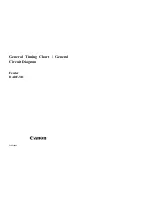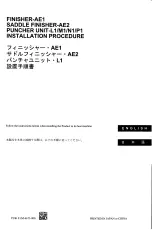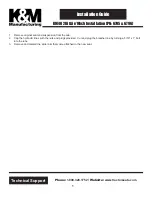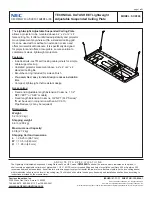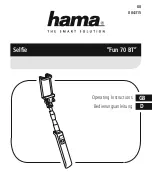
MSB Flintec
26 November 2014
The superstructure with the load cell assemblies attached is now ready to be secured to the vehicle frame mounting and
angles/brackets. Lower the superstructure so that the load cell bearing plates sit in the proper position on the vehicle
frame mounting angles/brackets. Check the proper alignment between the superstructure and the vehicle frame, and
check all bearing plates for contact with the frame mounting angles/brackets shim any gaps greater than 1.5 mm (1/16").
Caution:
Bearing Plate Welding: Please read the welding procedures on the following two pages completely before
proceeding. The welding of the bearing plates is the most crucial step in the installation process.
Take precautions to ensure that the vehicle electrical system is not damaged by the welding. To prevent electrical
current flow through the load cell, attach ground strap directly to the structure on the same side of the load cell on
which welding is being done.
Complete the attachment of the superstructure/load cell assembly in the following order (in accordance with the
welding procedures on page 11):
1. Tack weld the bearing plates to the mounting angles or brackets.
2. Remove the slag from tacks and ‘feather’ end of tack with a grinder to provide a smooth transition for the root
to pass as it passes through the tack. Welding can be completed without disassembly of load cells from bearing
plates. Direct electrode away from unprotected underside of load cell.
3. Alternate welds from side-to-side and end-to-end to avoid weld distortion.
10
Chassis frame rail
frame member
Weld load cell brackets in place (see caution
below, and welding procedure on page 11 before
proceeding with welding)
Body superstructure
frame rail
Bottom welded-on
mounting bracket
Top bolted
mounting bracket
Bracket welded to chassis example




















